SHE-HULK: ATTORNEY AT LAW – Season One
Jennifer Walters navigates the complicated life of a single, thirtysomething attorney who also happens to be a super-powered Hulk...
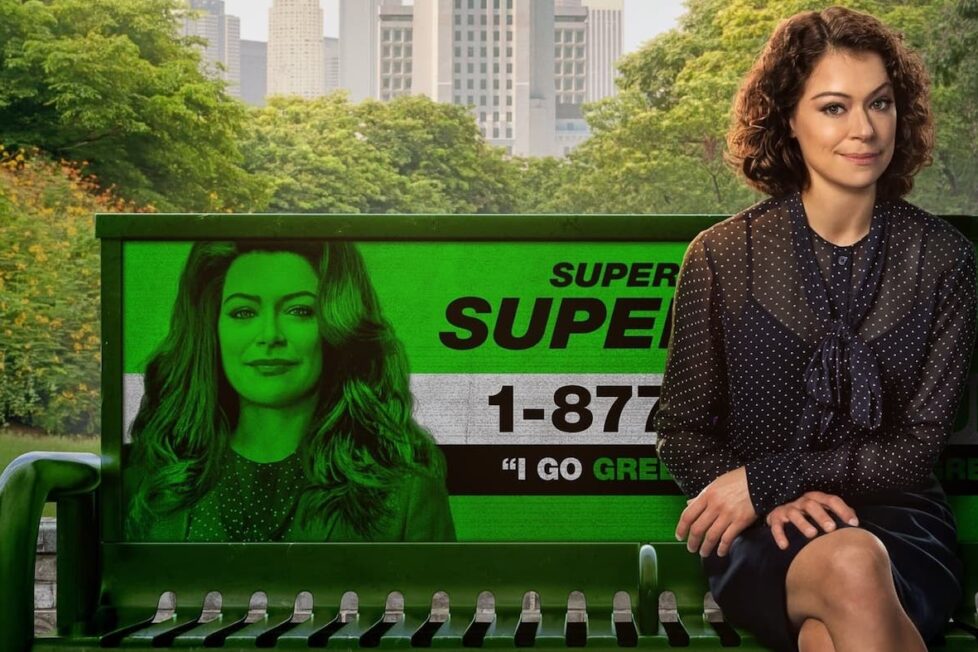
Jennifer Walters navigates the complicated life of a single, thirtysomething attorney who also happens to be a super-powered Hulk...


The Marvel Cinematic Universe branching wholeheartedly into television has resulted in considerably more stories than their movies have produced since WandaVision premiered in 2021, and it’s fascinating to see which characters are being given their own long-form narratives. But did Loki justify being a television show? Would The Falcon and the Winter Soldier have worked better as the subplot of the fourth Captain America film? Why couldn’t Moon Knight be introduced in a movie if the equally obscure Shang-Chi was given that treatment?
A similar question hangs over She-Hulk: Attorney at Law, which might have been the perfect way for Marvel to create a standalone “Hulk” adventure without breaking Universal Pictures’ contract that prevents them from making a solo Hulk film. My theory is that weekly legal dramas have always been popular on TV, so Jennifer Walters (Tatiana Maslaney) being a lawyer made that a more appealing proposition, perhaps also inspired by the success of Daredevil and his own alter-ego attorney Matt Murdock.
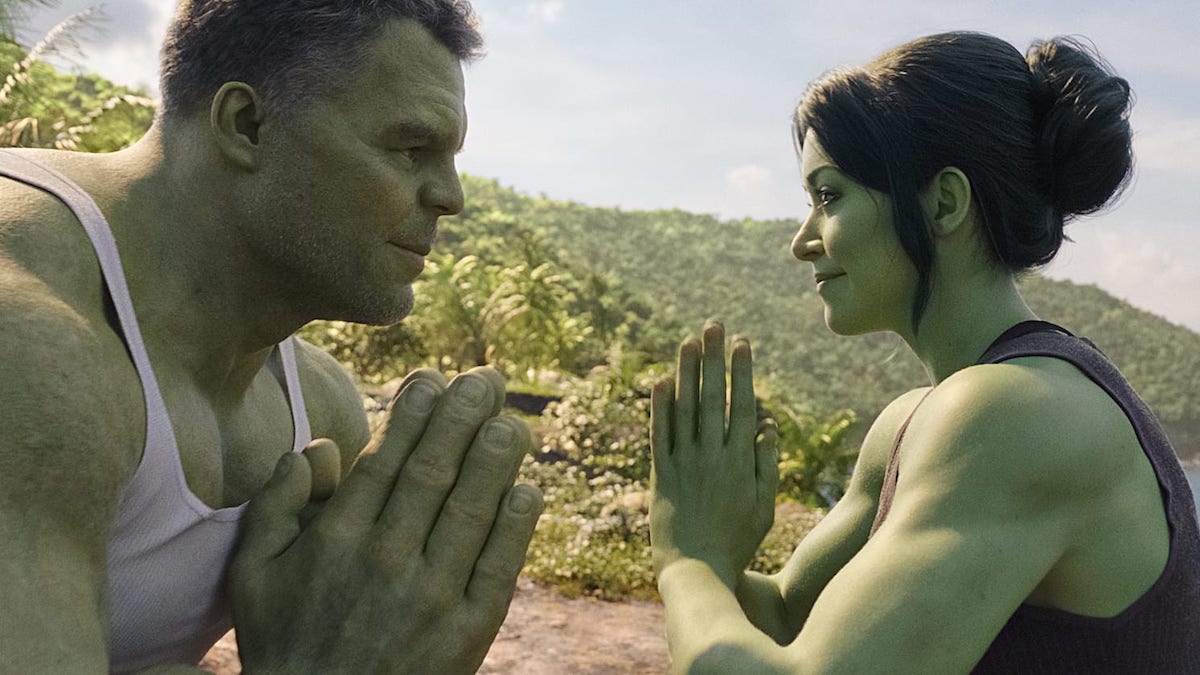
The strange thing about She-Hulk is that condensing its four best episodes (that bookend this season) into a two-hour narrative would’ve made for a compelling movie; one mixing “HULK SMASH!” action with quirky legal cases, a rom-com with a strong feminist angle, and plenty of Deadpool-style meta-comedy drizzled on top. But when compartmentalized into nine half-hours, the show ends up feeling trivial and unsubstantial for too long. It also doesn’t help that the writers rarely mixed the flavours this show offers into a tasty cocktail, so the episodes that worked were the ones that picked a lane. And that’s mostly the stories where the all-female writing staff admitted they can’t write a compelling legal comedy-drama and instead focused on the social issues affecting modern women—and particularly single women in their thirties.
Jennifer Walters is a lawyer and hitherto unmentioned cousin of Bruce “The Hulk” Banner (Mark Ruffalo). She transforms into ‘She-Hulk’ after being cross-contaminated with Bruce’s gamma-infused blood after a car accident that’s maddeningly not the inciting incident for a larger story. Jennifer soon realises she can become a tall, green woman with incredible strength and stamina whenever she pleases—only without the psychological turmoil and anger issues it caused her famous cousin. She seemingly has the best of both worlds, in a sense, especially once her newfound status as a ‘superhero’ turns her into a celebrity overnight and improves her professional and personal life in various ways. Jennifer is actively encouraged to ‘hulk-out’ at work (a subversion of how the comics played things), in order to head up a new division focusing on the legal needs of superheroes. Her love life also receives a boost because She-Hulk proves more alluring to men than her ordinary form… although she does seem to attract a certain type, shall we say.
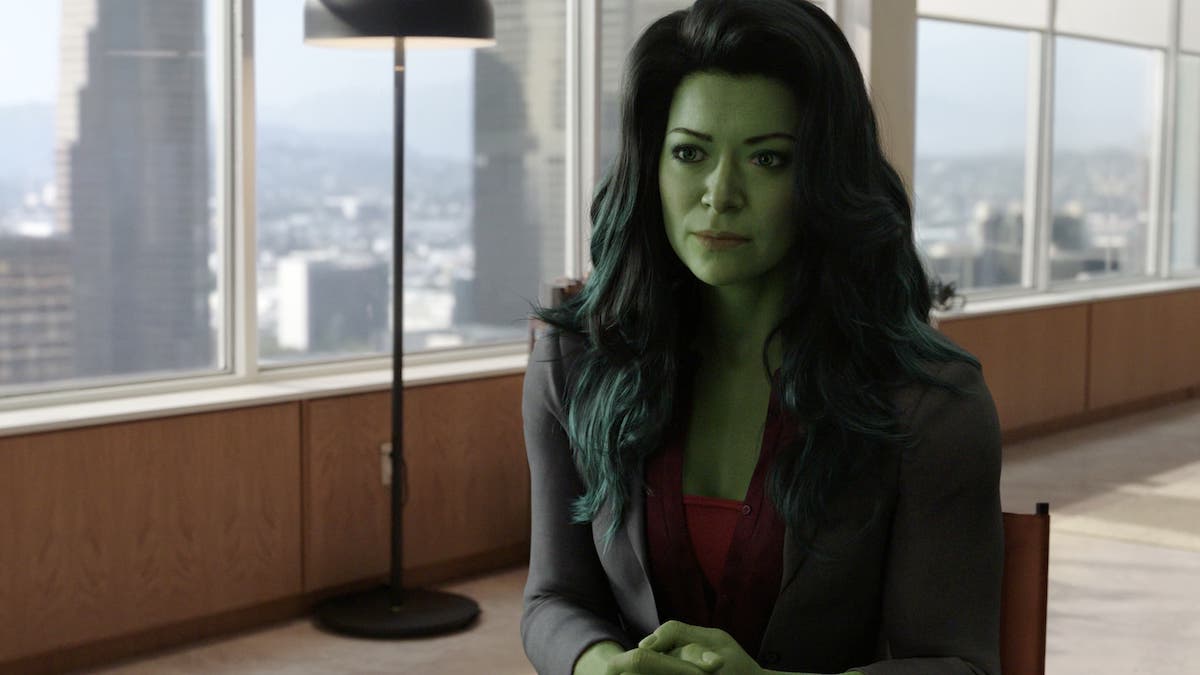
The first episode of She-Hulk, “A Normal Amount of Rage”, handles this setup well and is blessed with a fun guest appearance from Mark Ruffalo, who has instant and believable chemistry with Tatiana Maslany (Orphan Black). Written by series creator Jessica Gao (Rick & Morty), the premiere is light on its feet, frequently laugh-out-loud funny, makes you care about Jennifer as a believable person, and delivers some of the best VFX of any Marvel TV series by having two fully digital characters appear screen together. We’ve come a long way in terms of what audiences expect from their small-screen entertainment! It even breaks the fourth wall Fleabag-style, which sets it apart from all the other MCU characters (until Deadpool officially enters the universe), so it made for a promising start.
Sadly, almost everything until the last two episodes is either mediocre with fun moments or outright bad instalments salvaged by She-Hulk’s association with the MCU. One issue is that too many episodes feature extended guest appearances—Wong (Benedict Wong) from the Doctor Strange movies, or Emil Blonsky (Tim Roth) from The Incredible Hulk (2008)—which undercuts our desire to get to know Jennifer and this show’s own characters. Maslany has enough screen time to overcome this issue, but supporting players like her best friend Nikki Ramos (Ginger Gonzaga) and boss Mallory (Renée Elise Goldsberry) fade into the background and struggle to leave an impression. I couldn’t even tell you the names of other characters who are prominently featured.
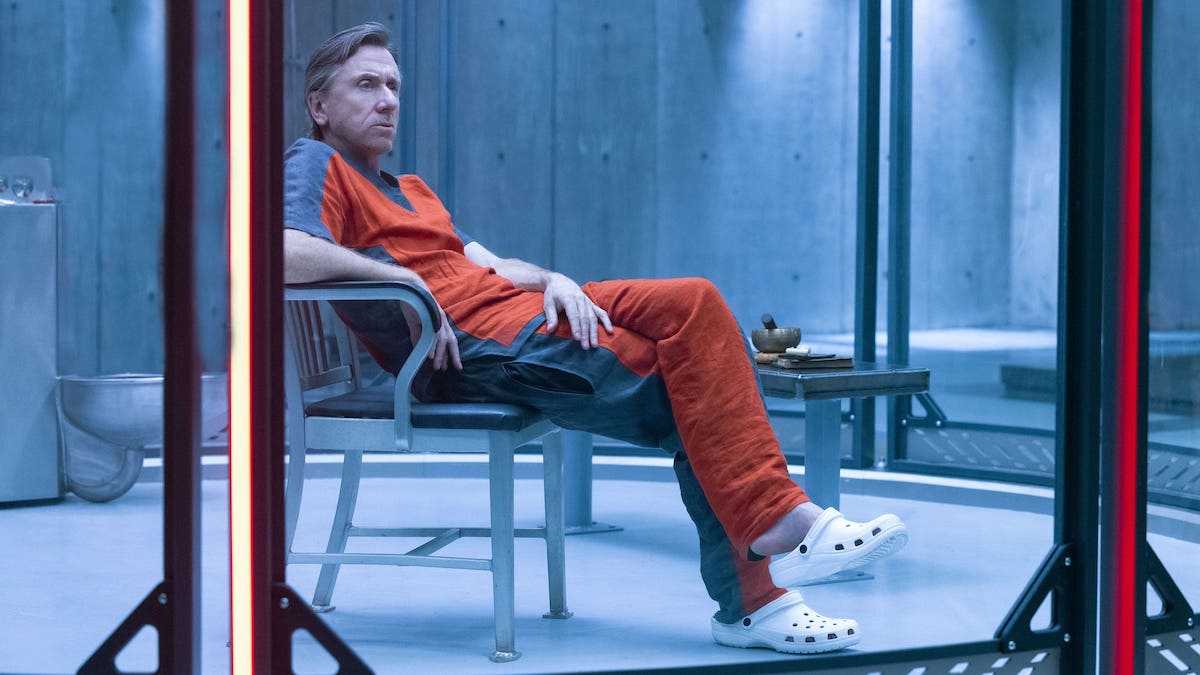
The main casualty of this and arguably She-Hulk’s biggest misfire is the ostensible villain Titiana (Jameela Jamil), a social media influencer with unexplained super-strength who takes against Jennifer after an incident at court, who’s introduced briefly in the premiere, becomes insignificant until episode 5’s “Mean, Green, and Straight Poured into These Jeans”, then appears just a few times almost out of contractual obligation.
It’s a woefully bad way to treat an antagonist the marketing hyped up, and despite Jamil (The Good Place) oozing fun as an eccentric narcissist, Titania’s role is unclear and certainly not the Big Bad it seemed she would be. Maybe it was intended to be a misdirect because the true villains of the show are a group of women-hating losers on the ‘dark web’, but it just created a strange disconnect. I enjoyed Jamil’s effervescent performance, but her character doesn’t have enough presence and fails to instil a sense of true malevolence in order to make her a credible threat. She’s literally introduced being slammed to the floor by She-Hulk!
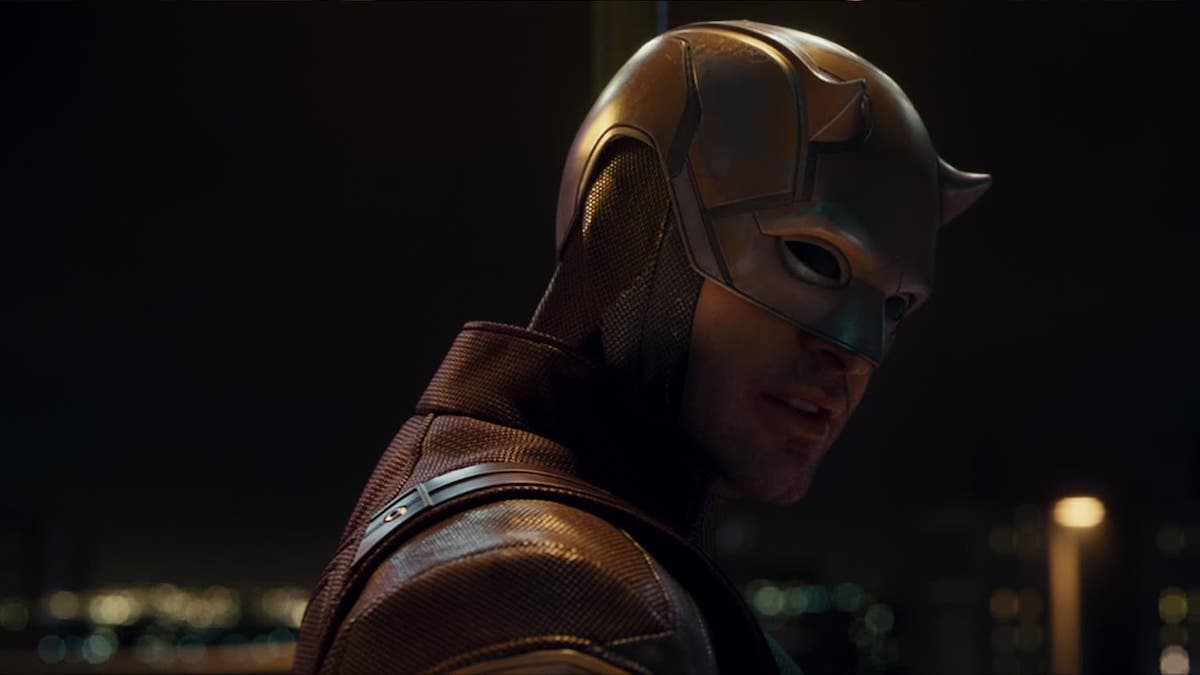
Tatiana Maslany is the saving grace of the show. She’s a terrific choice to play Jennifer and balances the comedy and drama better than everyone else. Best known for playing multiple clones on Orphan Black, She-Hulk doesn’t represent anything near the same acting challenge—especially as her two “characters” are only visually distinct. It’a also a pity She-Hulk is a digital creation, as even the budget of an expensive Marvel show can’t compete with a $200M movie, so She-Hulk can seem a little stiff or ‘floaty’ in some of her scenes. It’s impressive VFX for television, but always easier to engage with Jennifer’s more human form—with Maslany mixing Ally McBeal and Bridget Jones together.
Another bone of contention is She-Hulk’s signature meta-comedy, which is mostly contained as fourth-wall-breaking asides and a few nods to the reality of Marvel and its superheroes. It’s nothing we haven’t seen done elsewhere, much better, but it adds a new colour to the MCU that makes She-Hulk stand out from the crowd. The humour beyond that is, unfortunately, at the level of a weak US sitcom. The real problem is when She-Hulk fully embraces the meta-ness for its finale and tears through the fourth wall in a way even Deadpool hasn’t dared to, which for me causes more problems than it was worth…
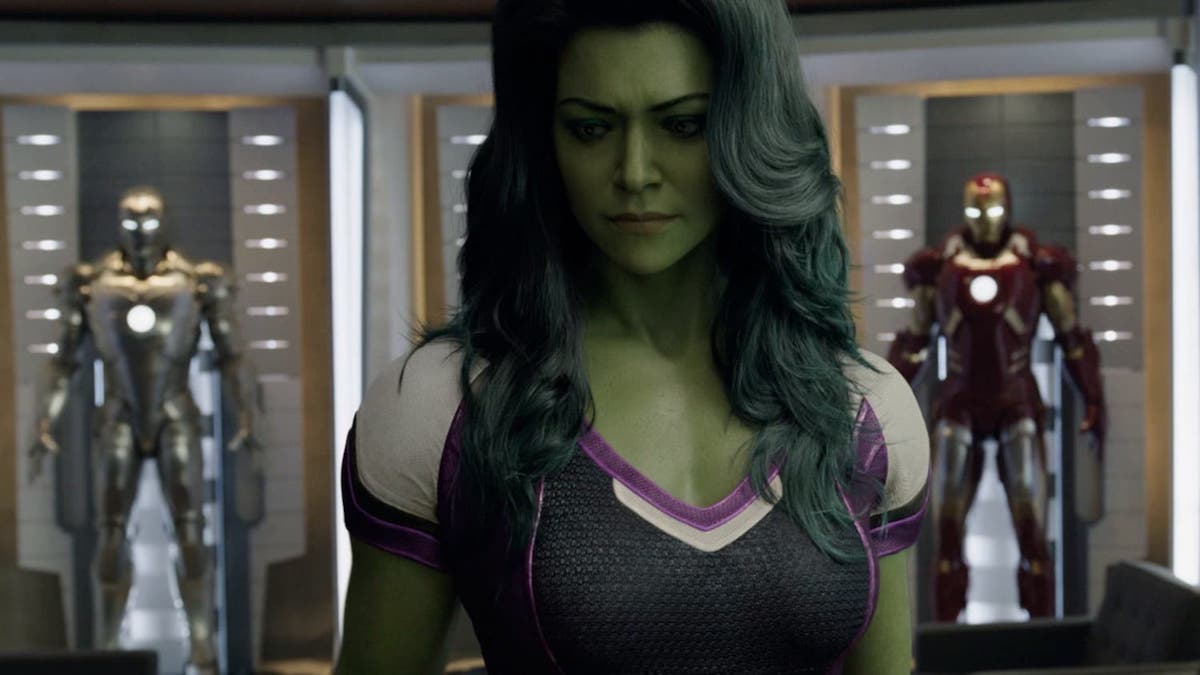
It’s increasingly difficult to take the MCU “seriously” these days (or as seriously as one can take a realm of gods and monsters) when one of its characters is acknowledging their fictional status. The MCU has become such a dominant force in popular culture that it’s now in conversation with itself, which some people will love because it results in self-referential dialogue and in-jokes, but others will find the material trickier to engage with as instalments become progressively sillier and self-aware. Thor: Love and Thunder (2022) pushed its Asgardian hero into self-parody at times, leading to unfunny results, and now we have a hero who’s aware she’s a character in a TV show to such an extent it’s hard to ignore. Deadpool walks a similar line but is reigned in enough to take the character and his situations seriously, but after She-Hulk it’s going to be hard not to wonder why Jennifer Walters doesn’t just go talk to the writers if the next Thanos-level supervillain causes The Avengers grief.
To end on a positive, there’s a wonderful episode called “Ribbit and Rip It” where Daredevil (Charlie Cox) teams up with She-Hulk that captures the Saturday morning cartoon feel the show needs to strive for more. It’s the only episode where the legal stuff fed into a genuinely amusing story, the action sequences are huge fun, and Jennifer got to have a romantic connection with Matt Murdock that clearly sparked. It even got a bit sexy, which is rare for Marvel…
Overall, She-Hulk: Attorney at Law has enough good elements to give me hope season 2 will figure things out better. Maslany is excellent and there’s potential in the concept of what this show could be when playing to its strengths, but the writing needs to improve when it comes to the legal cases and general quality of comedy.
USA | 2022 | 9 EPISODES | 2.39:1 | COLOUR | ENGLISH

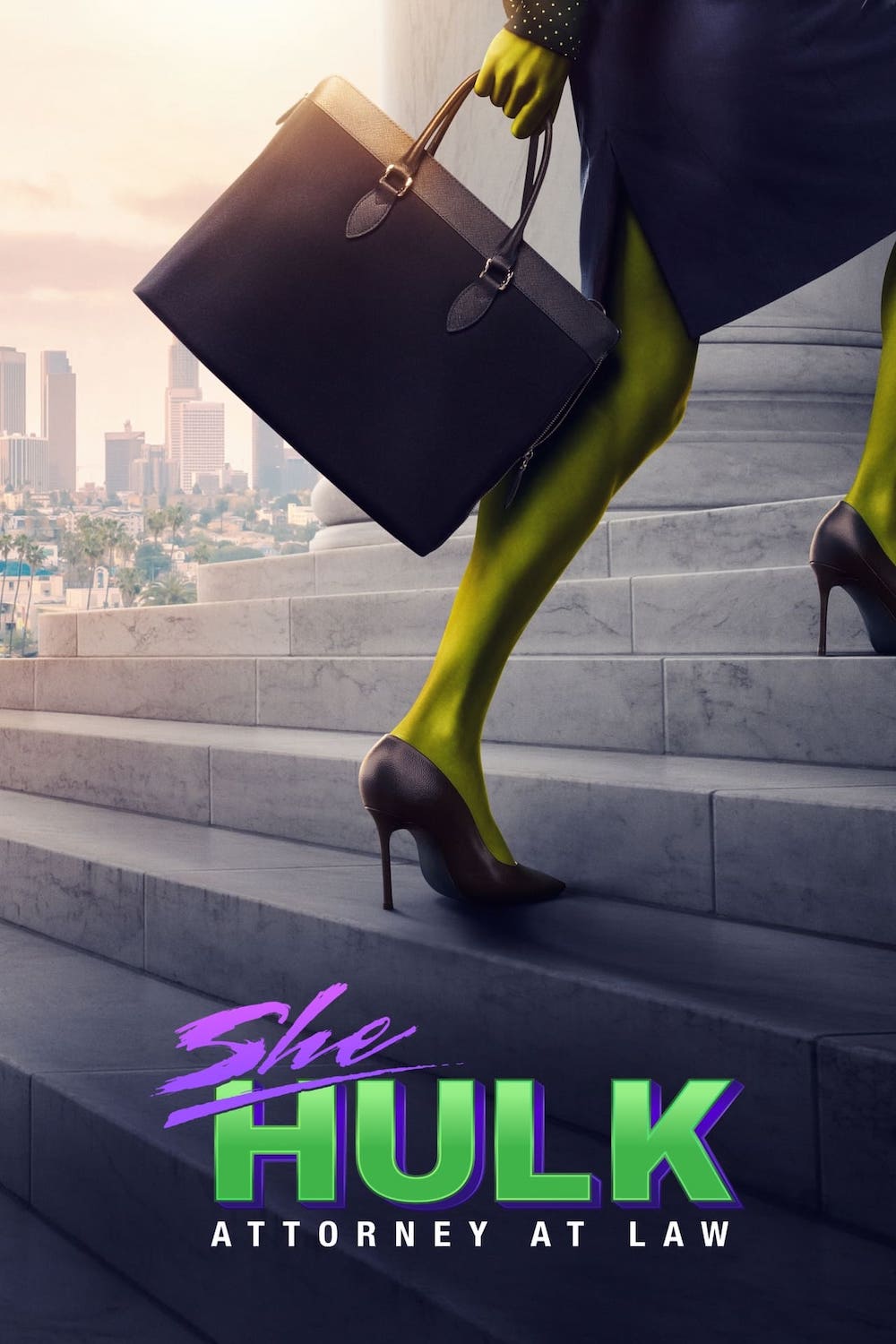
writers: Jessica Gao, Francesca Gailes, Jacqueline J. Gailes, Melissa Hunter, Dana Schwartz, Kara Brown, Zeb Wells & Cody Ziglar.
directors: Kat Coiro & Anu Valia.
starring: Tatiana Maslany, Jameela Jamil, Ginger Gonzaga, Mark Ruffalo, Josh Segarra, Mark Linn-Baker, Tess Malia Kincaid, Tim Roth, Megan Thee Stallion, Benedict Wong, Renée Elise Goldsberry, Jon Bass, Rhys Coiro, Griffin Matthews, Patti Harrison, Steve Coulter, Charlie Cox, Brandon Stanley & Drew Matthews.
